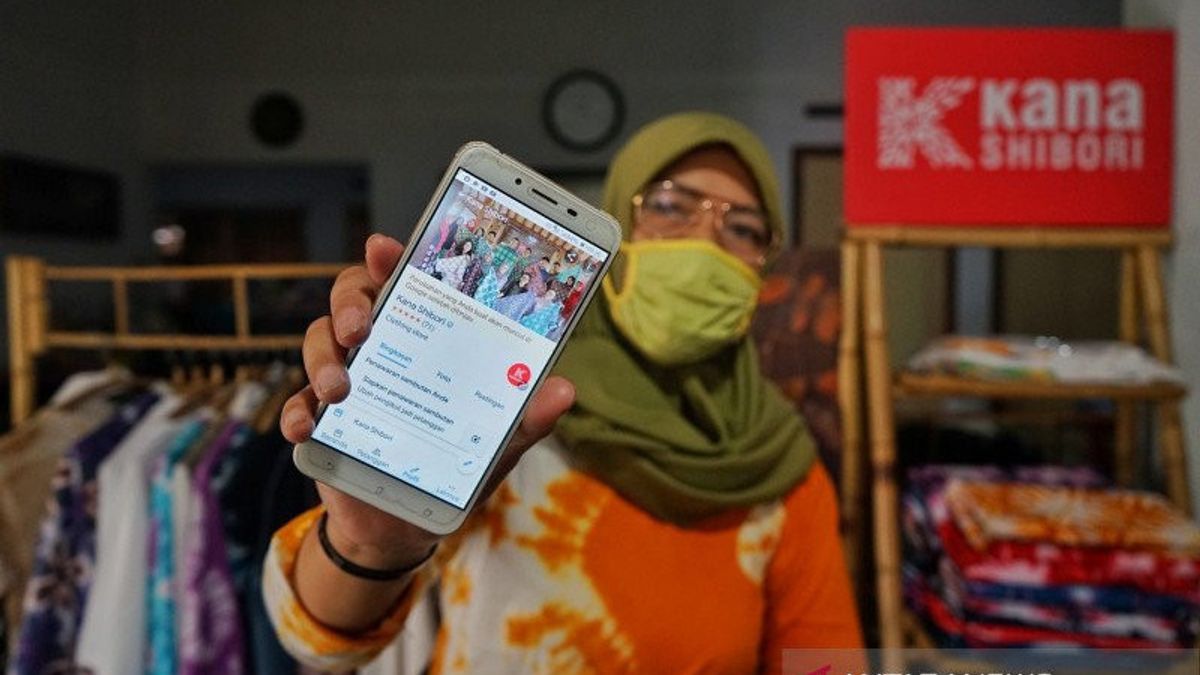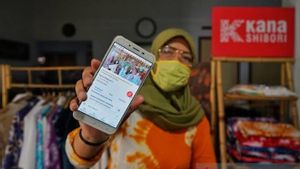JAKARTA - Users of online loans (Pinjol) in the country have increased sharply. The government is encouraged to revive the national cooperative ecosystem.
"The government must understand conditions like this, concrete steps are needed to help people who are entangled in Pinjol. One of them is community-based financing such as cooperatives that are very suitable for the people of Indonesia," said Chairman of the Indonesian House of Representatives, Puan Maharani, Wednesday, August 2.
Based on data from the Financial Services Authority (OJK), the number of active accounts of online loan recipients in Indonesia reached 17.68 million accounts as of May 2023. This number is calculated to have increased by 15.28% (YoY) when compared to the same period in the previous year.
Overall, the number of active Pinjol accounts in Indonesia is still centered on the island of Java with a total account of 12.88 million active loan recipients. Meanwhile, the total recipients of loans outside Java are around 4.43 million accounts.
Puan appealed to the government to make this momentum to revive the cooperative's economic model.
SEE ALSO:
"With this Pinjol phenomenon, the Government can present financial solutions that are friendly to the community. One of them is by presenting cooperatives as the most suitable financial institutions because they prioritize the principle of kinship," explained the former Coordinating Minister for Human Development and Culture.
Puan highlighted the large number of people who were entangled in Pinjol and then led to their social problems. The ease of lending funds from Pinjol ultimately caused various problems in the future. There are even several criminal cases due to the problem of borrowing.
"The use of Pinjol has negative risks and impacts, such as high interest rates and risk of fraud," said Puan.
Puan also encouraged the Government to intensify education and socialization of the dangers of Pinjol to the community. With the right understanding, it is hoped that this will reduce Pinjol users in the country.
"The public needs to be given an understanding that the use of Pinjol can also pose a risk of misuse of personal data, such as the use of data for unauthorized purposes or the dissemination of data to third parties," explained Puan.
The DPR also encouraged the OJK to tighten supervision of Pinjol, which has the potential to experience bad credit. Puan also requested that regulations be made that are increasingly rigid in order to protect the public's interests and reduce the risk of misuse of loan users.
"OJK needs to increase supervision and provide penalties for the Pinjol platform, which has a bad credit ratio," said Bung Karno's grandson.
On the other hand, Puan highlighted the many millennials who were entangled in Pinjol. Because not a few of the younger generation are currently facing bad credit problems.
"The DPR and the Government must work together to save the millennial generation from dependence on online loans. These young people must understand that this will harm their future if they face troubled credit," said Puan.
OJK data noted that outstanding bad loans among the millennial generation reached Rp655.75 billion during the first four months of 2023. This is an annual increase of 13.90 percent (year-on-year/YoY) when compared to April 2022, which recorded only Rp575.74 billion.
The naughty Pinjol makes it easy to borrow funds to attract millennials who are less literate or the lower middle class. Because the provision of funds only requires photos with ID cards and cell phone numbers.
"Young people need to be given literacy that if they are blacklisted by the OJK because they are in arrears in paying online loans, it will have an impact on their future design," said Puan.
"If it has been blacklisted, it will be difficult for millennials to apply for loans at banks for their future needs," continued the first woman to serve as Chairman of the Indonesian House of Representatives.
The English, Chinese, Japanese, Arabic, and French versions are automatically generated by the AI. So there may still be inaccuracies in translating, please always see Indonesian as our main language. (system supported by DigitalSiber.id)












